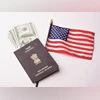TCS, Infosys, Wipro on edge as H-1B changes loom with Trump's return
This may have an impact on India's $250 billion tech sector which plays an important role in the economy, employing about 5.4 million people
)
Explore Business Standard

Associate Sponsors
Co-sponsor
This may have an impact on India's $250 billion tech sector which plays an important role in the economy, employing about 5.4 million people
)
Uncertainty ahead?
Already subscribed? Log in
Subscribe to read the full story →

3 Months
₹300/Month
1 Year
₹225/Month
2 Years
₹162/Month
Renews automatically, cancel anytime

Over 30 premium stories daily, handpicked by our editors



News, Games, Cooking, Audio, Wirecutter & The Athletic

Digital replica of our daily newspaper — with options to read, save, and share



Insights on markets, finance, politics, tech, and more delivered to your inbox

In-depth market analysis & insights with access to The Smart Investor



Repository of articles and publications dating back to 1997

Uninterrupted reading experience with no advertisements



Access Business Standard across devices — mobile, tablet, or PC, via web or app
First Published: Dec 31 2024 | 9:26 PM IST